There are too few nonprofit organizations like CC fighting for the commons – support our vital leadership with an end of year contribution. Donate today!
Author: Connor Benedict
CC strategic workshop reveals big opportunities for open access to cultural heritage
by Brigitte Vézina, Connor Benedict Open Culture, Open Heritage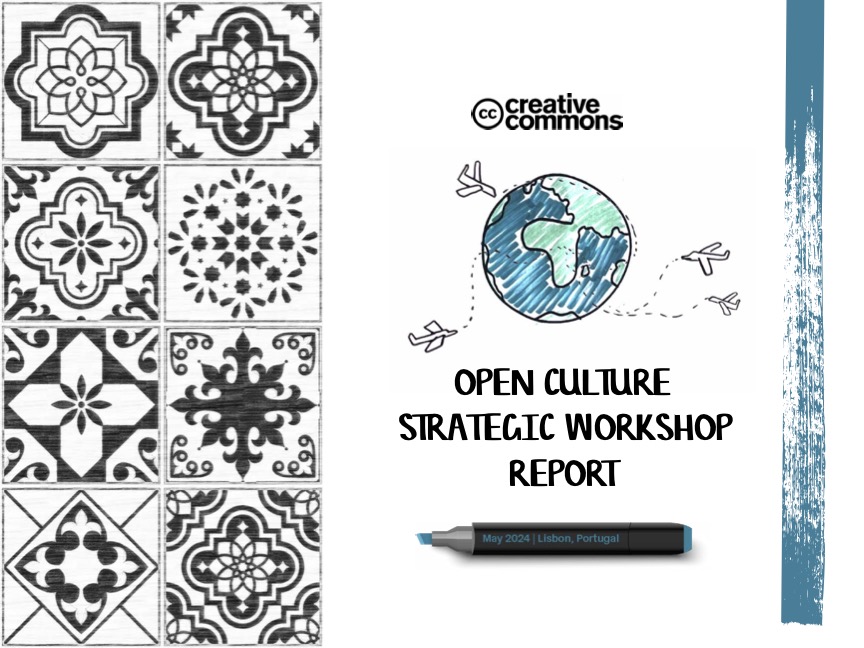 Open Culture Strategic Workshop Report Cover, by Dee Harris, CC BY 4.0
Open Culture Strategic Workshop Report Cover, by Dee Harris, CC BY 4.0
In May 2024, CC organized a strategic workshop in Lisbon to develop a roadmap for future action to advance our work towards a UNESCO instrument on open cultural heritage. In this blog post, we share the full report and some of its key highlights.
A Quick Look at the CC Strategic Workshop on Open Heritage
by Brigitte Vézina, Connor Benedict Open Culture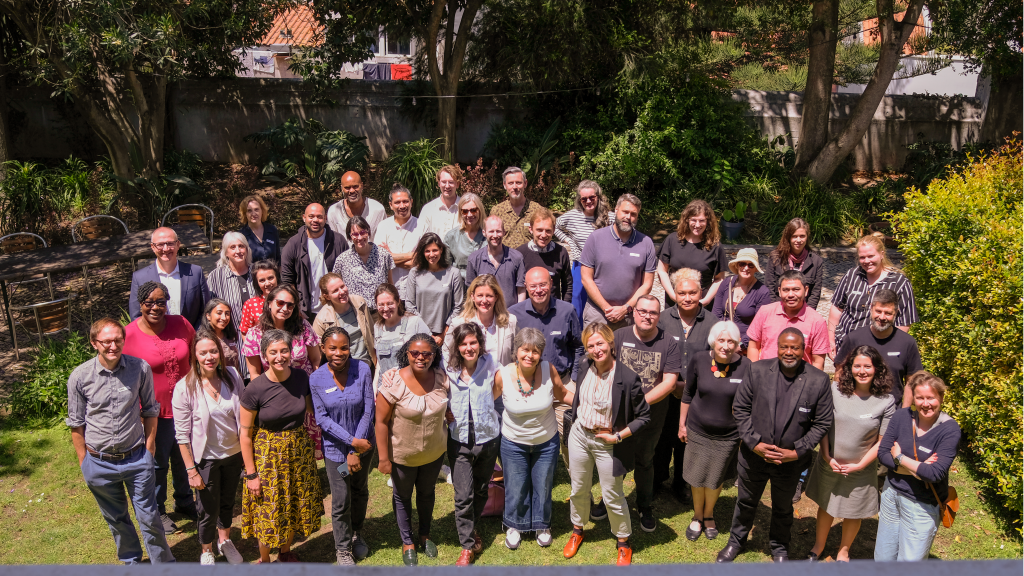 Cropped, Open Culture Strategic Workshop by Filipa Alfama, CC BY 4.0
Cropped, Open Culture Strategic Workshop by Filipa Alfama, CC BY 4.0
One year after Creative Commons (CC) hosted an exploratory Open Culture Roundtable, in Lisbon, Portugal, which initiated the Towards a Recommendation on Open Culture (TAROC) global initiative, nearly 50 stakeholders from all continents gathered again for a strategic workshop, in Lisbon in May 2024. In this blog post, we share a snapshot of key highlights.
Celebrating the Public Domain in the Capital of Europe
by Connor Benedict, Brigitte Vézina Open Culture Close-up of the Brussels' Atomium on a clear day By Geertivp, CC BY-SA 4.0 https://commons.wikimedia.org/wiki/File:Close-up_of_the_Brussels%27_Atomium_on_a_clear_day_(cropped).jpg
Close-up of the Brussels' Atomium on a clear day By Geertivp, CC BY-SA 4.0 https://commons.wikimedia.org/wiki/File:Close-up_of_the_Brussels%27_Atomium_on_a_clear_day_(cropped).jpg
Last week, Creative Commons took part in the International Public Domain Day celebration at the Royal Library of Belgium in Brussels. Two engaging roundtables were hosted, delving into copyright issues concerning the public domain and its future. The event united advocates for open access to cultural heritage, featuring presentations on topics like the monetization and decolonization of the public domain, as well as updates on the Europeana Public Domain Charter. Creative Commons introduced new guidelines published in February aimed at encouraging users to reference institutions when utilizing public domain cultural heritage materials.
Where in the world is… this public domain material? Helping users refer to host institutions.
by Connor Benedict, Brigitte Vézina Open Heritage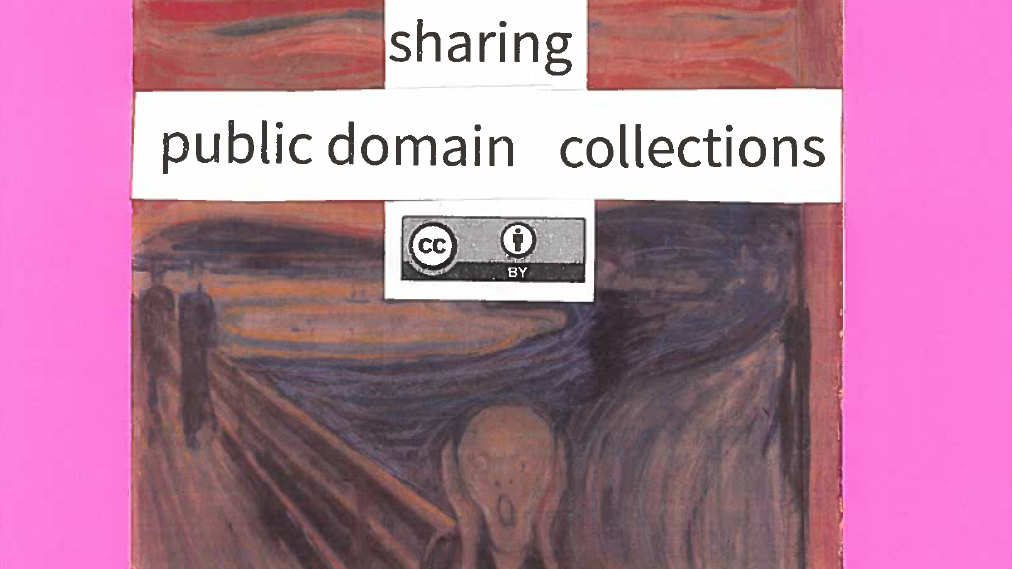
CC’s new guidelines aim to encourage users to refer to host cultural heritage institutions when using public domain materials. Rooted in the Behavioural Insights Team’s EAST Model, they offer institutions practical design ideas to nudge users into referring back to them.
What did Creative Commons do for Open Culture in 2023?
by Brigitte Vézina, Jocelyn Miyara, Connor Benedict Open Culture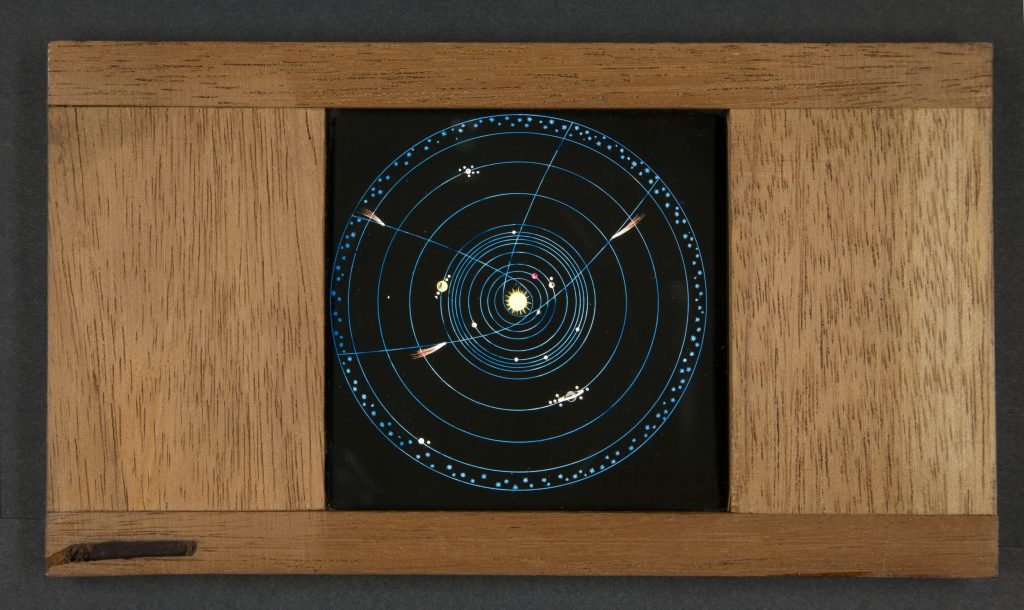 Laterna magica bild målad i färg på glasskiva. Bilder ur solsystemet. from Tekniska Museet Svenska, Public Domain Mark. https://digitaltmuseum.se/021016341596/laterna-magica-bild-malad-i-farg-pa-glasskiva-bilder-ur-solsystemet
Laterna magica bild målad i färg på glasskiva. Bilder ur solsystemet. from Tekniska Museet Svenska, Public Domain Mark. https://digitaltmuseum.se/021016341596/laterna-magica-bild-malad-i-farg-pa-glasskiva-bilder-ur-solsystemet
2023 was quite a year for the Creative Commons (CC) Open Culture Program, thanks to generous funding from Arcadia, a charitable fund of Lisbet Rausing & Peter Baldwin. In this blog post we look back on some of the year’s key achievements.
Celebrating Two Years of CC’s Open Culture Voices
by Brigitte Vézina, Connor Benedict, Jocelyn Miyara Open Culture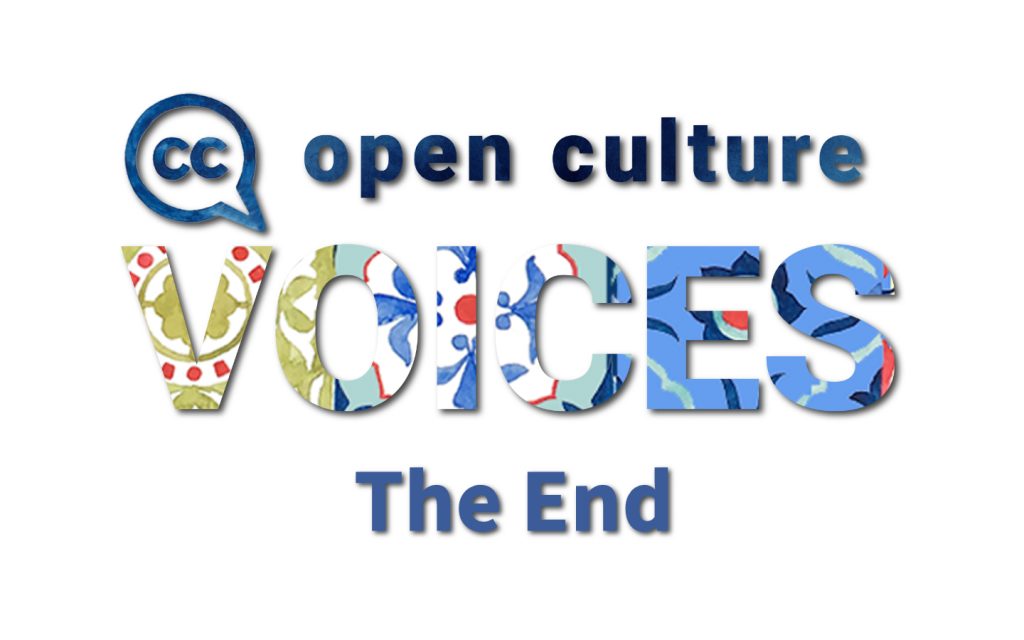
Today we conclude the Open Culture Voices series, which over two years has showcased more than 65 open culture experts and practitioners from around the world. Over these two years we have had the privilege of engaging with remarkable individuals, each bringing their unique insights and stories to our community. Thank you!
On Openness & Copyright, EU AI Act Final Version Appears to Include Promising Changes
by Creative Commons Better Internet, Policy
The EU’s political institutions announced that they have reached a tentative final agreement. While details are still not finalized and many questions remain regarding treatment of certain high-risk systems, the agreement appears promising relative to the recent Parliament text and from the perspective of supporting open source, open science, as well as on copyright.
Pierre El Khoury — Open Culture VOICES, Season 2 Episode 29
by Brigitte Vézina, Connor Benedict Open Culture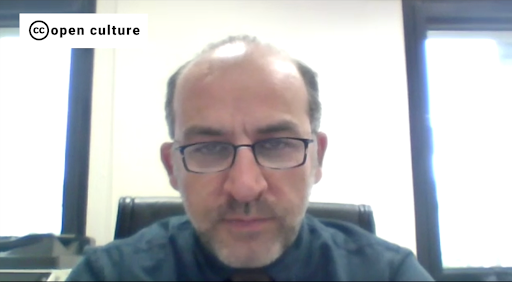
“For researchers GLAM’s preserve primary sources” which is of great benefit when creating knowledge and research about the present and the past. Pierre talks about how open access policies in GLAM’s make knowledge shared and more widespread instead of just for the elite few with permission from the collecting institution. Open Culture VOICES is a…